Rich cultural heritage, diversified religions, spread out geographical boundaries and deep rooted traditions makes India one of the few lands all over the world to celebrate many festivals all year round. Each festival celebrates the spirit and deep rooted traditions of the many religions that are practised in India. Indian festivals are often to commemorate the events from the mythology and may be specific to a particular religion or in certain cases caste and community. Indian festivals often coincides with the change of season too. What is commendable and at the same time unique is that all the Indian festivals are celebrated with equal zeal, fervour and fanfare.
The timing of most of the Indian festivals is based on calendars. While for all official purposes the prevalent Gregorian calendar year is followed, most of the Indian festivals follow a separate calendar based on the motion of the moon – Lunar calendars – such as the Islamic calendars, Solar calendars such as the Persian calendars and a mix of solar and lunar – the Hindu calendar.
Glamcheck is proud to bring to you this rich cultural heritage of India in the form of detailed write ups on each Indian festival.
Ganesh Chaturthi
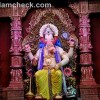 Festivals in India begin with Ganesh Chaturthi every year as dictated by Lord Shiva, himself. The marvelous sculpture of Lord Ganesha is said to annihilate all evil from one’s life. The Ganesh Festival or ‘Ganeshotsav’ / ‘Ganesh Chaturthi’ is celebrated all over India.
Festivals in India begin with Ganesh Chaturthi every year as dictated by Lord Shiva, himself. The marvelous sculpture of Lord Ganesha is said to annihilate all evil from one’s life. The Ganesh Festival or ‘Ganeshotsav’ / ‘Ganesh Chaturthi’ is celebrated all over India.
Navratri and Durga Puja
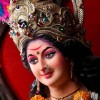 Celebrated twice a year, once during the spring and the other during autumn, navratri is considered the most holy period. Falling on the last 4 days of the Autumn Navratras -(usually Sept/ Oct), the festival of Durga Puja is widely celebrated in the Eastern and Western parts of the country. Goddess of power and vigour, Ma Durga and her various forms are worshipped and her victory over the all powerful demon king Mahisasur is celebrated.
Celebrated twice a year, once during the spring and the other during autumn, navratri is considered the most holy period. Falling on the last 4 days of the Autumn Navratras -(usually Sept/ Oct), the festival of Durga Puja is widely celebrated in the Eastern and Western parts of the country. Goddess of power and vigour, Ma Durga and her various forms are worshipped and her victory over the all powerful demon king Mahisasur is celebrated.
Dussehra Festival – Indian Festival
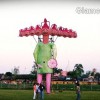 The festival of Dussehra is to mark the victory of good over evil. Falling immediately after the nine nights or Navratri, this tenth day celebrates the victory of Ma Durga over the demon king Mahisasur and Lord Rama’s victory over the ten headed demon Ravana. Celebrated all over the country , this Indian festival witnesses large scale fireworks and burning of effigies of the demons.
The festival of Dussehra is to mark the victory of good over evil. Falling immediately after the nine nights or Navratri, this tenth day celebrates the victory of Ma Durga over the demon king Mahisasur and Lord Rama’s victory over the ten headed demon Ravana. Celebrated all over the country , this Indian festival witnesses large scale fireworks and burning of effigies of the demons.
Karva Chauth – Indian Festival
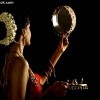 An auspicious day long festival where married women and unmarried engaged women observe a day long fast without food or water and pray for the long lives of their husbands. Observed mostly in the Northern states of India, this festival is observed with much fanfare and pomp.
An auspicious day long festival where married women and unmarried engaged women observe a day long fast without food or water and pray for the long lives of their husbands. Observed mostly in the Northern states of India, this festival is observed with much fanfare and pomp.
Diwali – The Indian Festival of Lights
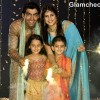 The land of festivals – India celebrates perhaps its brightest and most widely celebrated festival Diwali every year. Celebrated on a no moon night or ‘Amavasya’, Diwali marks the end of Hindu month ‘Ashwin’ and beginning of the month ‘Kartik’.
The land of festivals – India celebrates perhaps its brightest and most widely celebrated festival Diwali every year. Celebrated on a no moon night or ‘Amavasya’, Diwali marks the end of Hindu month ‘Ashwin’ and beginning of the month ‘Kartik’.
Bhai Dooj – Festival to pray for ones brother’s long life
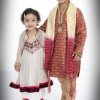 The country of festivals India, celebrates each occasion with great gusto and joie de vivre. On the second day after Diwali (the festival of lights), is celebrated a unique festival of Bhai Dooj also known as Bhau Beej and Bhai Phota.
The country of festivals India, celebrates each occasion with great gusto and joie de vivre. On the second day after Diwali (the festival of lights), is celebrated a unique festival of Bhai Dooj also known as Bhau Beej and Bhai Phota.
Pongal:
This festival is celebrated mostly in the Southern parts of the country and is to mark the transition of winter to spring, and thereby duration of day increasing. It is also to celebrate the Harvest festival. This usually falls in the middle of January.
Makar Sankranti:
What Pongal is to the Southern India, Makar Sankranti is to Northern India. Celebrated for the same reasons and around the same time, the rites and rituals followed in each of the festivals are however different.
Basant Panchami – Saraswati Puja
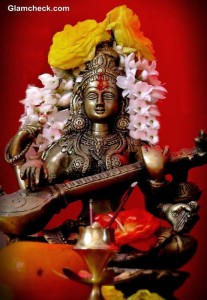 Celebrated on the 5th day of the Magh month in Eastern parts of India, this festival is also known as Saraswati Puja and is to invoke the blessings of the goddess Saraswati, the goddess of wisdom, music and art.
Celebrated on the 5th day of the Magh month in Eastern parts of India, this festival is also known as Saraswati Puja and is to invoke the blessings of the goddess Saraswati, the goddess of wisdom, music and art.
